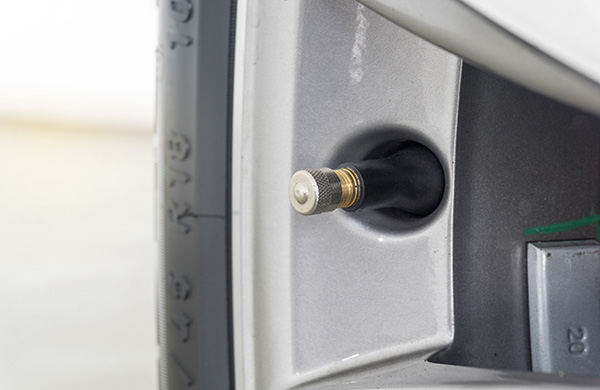
Have you ever approached your car, noticed a tire looking low, and wondered, “How did that happen without any obvious damage?” Tires can lose air in more ways than just picking up a nail. While most of us think of punctures as the primary cause, there are actually several reasons why a tire might deflate without a visible hole. Understanding these causes can help you keep your tires properly inflated, extend their lifespan, and maintain your car’s performance.
Temperature Fluctuations
One of the most common reasons for tire air loss, especially in colder months, is temperature fluctuation. As the temperature drops, so does the pressure inside your tires. For every 10-degree Fahrenheit drop in temperature, tire pressure decreases by about one psi (pounds per square inch). When winter sets in, this can mean a significant dip in tire pressure, even if your tires have no physical damage. This drop isn’t technically a “leak,” but it can greatly affect your vehicle’s handling and fuel efficiency.
On the flip side, during hot summer days, tire pressure can increase as the air inside expands. This fluctuation due to temperature change isn’t necessarily harmful in the short term but can lead to uneven wear over time. Regularly checking your tire pressure when temperatures shift between seasons can help prevent underinflation or overinflation issues.
Aging Tires and Natural Air Loss
Tires are made from rubber, a material that naturally lets some air escape over time. This process is called “permeation.” As tires age, they become more porous, allowing air to seep through at a slow rate, even without any punctures. Older tires can lose air more rapidly than newer ones, and this gradual air loss often goes unnoticed until you find yourself constantly refilling the same tire.
If your tires are more than five years old, it might be time to consider replacing them, as the rubber compounds start breaking down. Checking your tires’ manufacturing date can give you a good idea of their age. Tires generally have a life expectancy of around six to ten years, depending on usage, climate, and road conditions.
Valve Stem Leaks
The valve stem is a tiny but essential part of your tire that can cause air leaks if it’s damaged or faulty. Every time you fill up your tire with air, the valve stem opens to let the air in and seals it to keep the pressure steady. Over time, exposure to weather, debris, and age can cause the rubber around the valve stem to crack or deteriorate, leading to a slow leak.
Sometimes, a damaged or missing valve cap can let in dirt or moisture, weakening the seal in the valve stem. Regularly checking the condition of your valve stems and ensuring the caps are secure can prevent unexpected air loss from these small but important components.
Rim Leaks
Another culprit in unexplained air loss is the tire’s rim, particularly if it has become corrupted or damaged. The area where the tire’s bead meets the rim needs a tight seal to keep the air inside the tire. Corrosion, often caused by road salt and moisture, can weaken this seal, leading to a slow but steady air leak.
Rim leaks are especially common in areas with harsh winters, where salt and chemicals on the road can eat away at the metal rims. If you’ve noticed that a tire is constantly losing air and can’t find any visible damage, there’s a chance it could be a rim issue. A professional can help clean and reseal the rim or advise if it’s time for a replacement.
Poor Tire Fit
Sometimes, air loss can stem from an improper fit between the tire and the rim. This issue often occurs when tires aren’t mounted correctly or when the tire and rim sizes don’t match perfectly. Even a small discrepancy in size can prevent the tire from sealing against the rim, allowing air to escape over time. It’s essential to ensure that when you get new tires, they’re the correct size and are mounted properly by a professional to avoid this issue.
Signs That Your Tire Might Be Losing Air Without a Hole
If you’ve been experiencing unexpected air loss, watch for these signs that might point to an issue other than a puncture:
- Frequent Need for Inflation: If you’re topping off the same tire more than once a month, that could be a sign of a slow leak.
- Temperature Sensitivity: Noticing a significant drop in tire pressure with cold weather can be a normal response to temperature changes.
- Old Tires: If your tires are several years old, air loss from natural aging and permeation could be to blame.
- Corroded Rims: Rust or corrosion around the rim area can disrupt the tire’s seal.
Keeping Your Tires in Shape
While some air loss is unavoidable, regular maintenance can prevent these issues from becoming larger problems. Keep an eye on your tire pressure, especially when the weather changes. Invest in a good-quality tire pressure gauge and check your pressure monthly. Address any air loss promptly to avoid wear on your tires and keep your vehicle running efficiently.
If you’re still experiencing issues after checking these common causes, a professional inspection can help pinpoint the problem and provide you with the right solutions.
Ensure your tires are ready for the road! Stop by Woodie's Auto Service & Repair Centers for expert maintenance, inspections, and replacements.